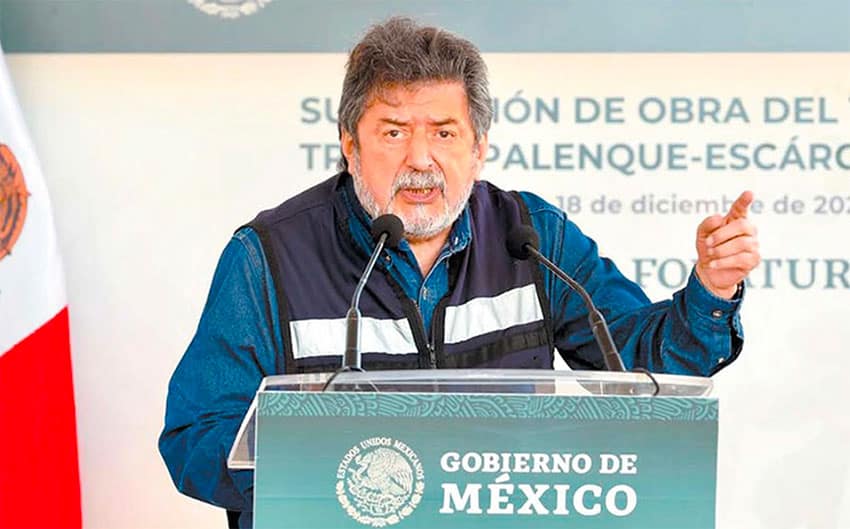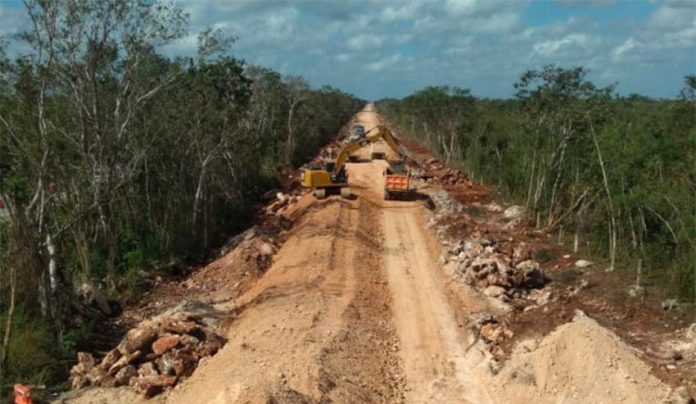Up to 12 solar energy plants could be built in the next three years to power the Maya Train, according to the head of the National Tourism Promotion Fund (Fonatur), which is managing the ambitious rail project in Mexico’s southeast.
Rogelio Jiménez Pons told the newspaper Milenio that Fonatur has a master plan that proposes the construction of that number of solar farms in different parts of the country.
He said solar plants would be built in San José del Cabo and Loreto in Baja California; Tulum and Cozumel in Quintana Roo; Palenque, Chiapas; Calakmul, Campeche; Ixtapa/Zihuatanejo, Guerrero; and Huatulco, Oaxaca.
Jiménez said solar plants could also be built at airports operated by the government-owned corporation Aeropuertos y Servicios Auxiliares.
The Fonatur chief said energy generated at the plants would be used for the electrification of the Maya Train, which will transport passengers along 1,500 kilometers of tracks in Tabasco, Campeche, Yucatán, Quintana Roo and Chiapas.

That revelation comes nine months after the federal government said it had decided that the Maya Train would be powered by diesel rather than electricity in order to keep operating costs down.
Jiménez said solar plants in San José del Cabo, Tulum and Cozumel would be the first to be built, with construction to start this year after a tendering process in September.
The investment for those three projects will be US $187 million, he said, explaining that Fonatur will provide 20% of the money and the other 80% will come from two state-owned banks, Nacional Financiera and Bancomext.
The San José del Cabo, Tulum and Cozumel plants will have a combined output of 110 megawatts, Jiménez said, adding that the Maya Train will require 200 megawatts to operate. That quantity of power will be reached after additional new solar plants come on line in 2022, he said.
The US $8-billion Maya Train railroad, currently under construction, is expected to start operations in 2023.
Jiménez said that all of the Maya Train solar plants will have battery storage so that they continue to supply power at night.
The Fonatur chief also told Milenio that profits from the Cozumel plant will be used for the establishment of a free ferry service between the island, located off the coast of Playa del Carmen, and Cancún. He said the navy will be responsible for building the ferry and operating the Cozumel-Cancún service.
Profits from other solar plants will go to the ministries of the Environment and Culture for a range of programs. Jiménez emphasized that more energy needs to be generated in Mexico but not by private companies that send profits out of the country.
The Fonatur director said in a separate interview that all of the profits generated by the operation of the Maya Train railroad, on which freight trains will also run, will go directly to the Ministry of National Defense.
Source: Milenio (sp)
